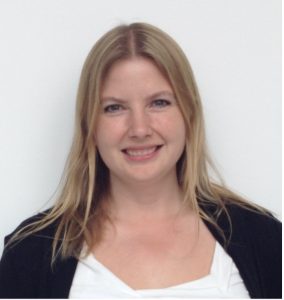Shannon Kolind
Titles, Departments and Affiliations:
Associate Professor, Department of Medicine, Division of Neurology
Associate Member, Department of Radiology
Associate Member, Department of Physics and Astronomy
Investigator, Djavad Mowafaghian Centre for Brain Health
Investigator, icord
Location: Djavad Mowafaghian Centre for Brain Health
Tell us about your research and what makes you passionate about it.
My research is focused on developing new ways to use magnetic resonance imaging (MRI) to be more sensitive and specific to different aspects of brain and spinal cord biology. For example, we have developed a method of imaging myelin, the coating around the nerves of the brain and spinal cord that allow signals to travel as quickly as they need to, which can be used to detect damage due to diseases such as multiple sclerosis or injuries such as spinal cord injuries. We can use these techniques to guide treatment decisions as well as to develop new treatments. I am also passionate about making MRI more accessible to everyone, so that we can all make use of this technology for better health and care.
Is there a translational aspect of your research that you are most excited about?
I am proud that we have been able to apply techniques we have developed to successful clinical trials of new therapies for MS. I am also very passionate about ultra-low field point-of-care MRI; we are helping to develop more utility for this novel and exciting technology that is poised to make MRI infinitely more accessible, especially to people in remote communities or facing long wait times.
Are there any initiatives you would like to see at UBC to accelerate translational medicine in your area of research?
I would love to see more exchanges between people in the lower mainland and in more remote parts of the province, to understand the challenges facing health care away from city centres, and amongst different cultures.
You are part of the Academy of Translational Medicine Early Career Researcher cohort at UBC. What is the most important aspect of that community for you?
Communication between clinicians and fundamental scientists is absolutely key to translation. I appreciate being able to talk to the people who can guide our technical developments to be as useful for healthcare in real world situations as possible.
Is there a resource that you found impactful and would recommend to others interested in translational medicine?
Grant support for interdisciplinary grants! This can be a daunting task but so important; having expert advice on key elements is so helpful
How do you like to recharge outside of work?
I enjoy mountain biking (wonderful trails all around the lower mainland), travel (I am very exciting for an upcoming trip to several countries in Africa), and reading (fiction outside of work!).
